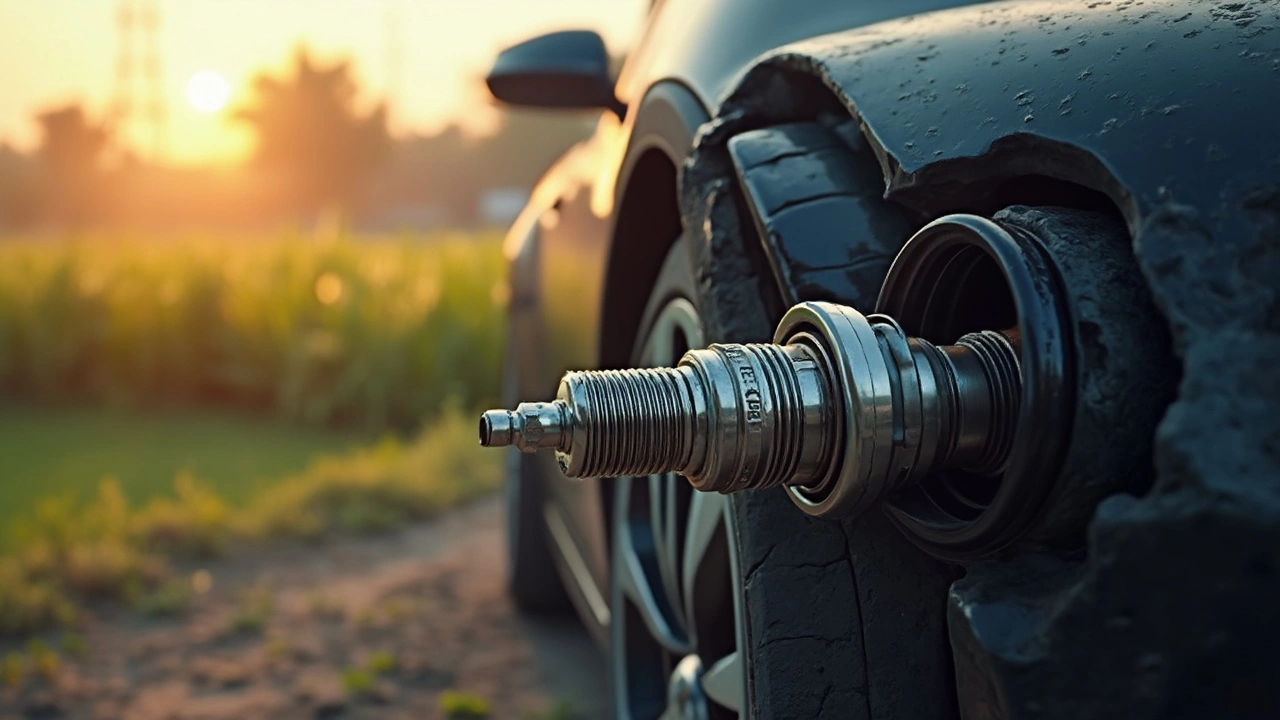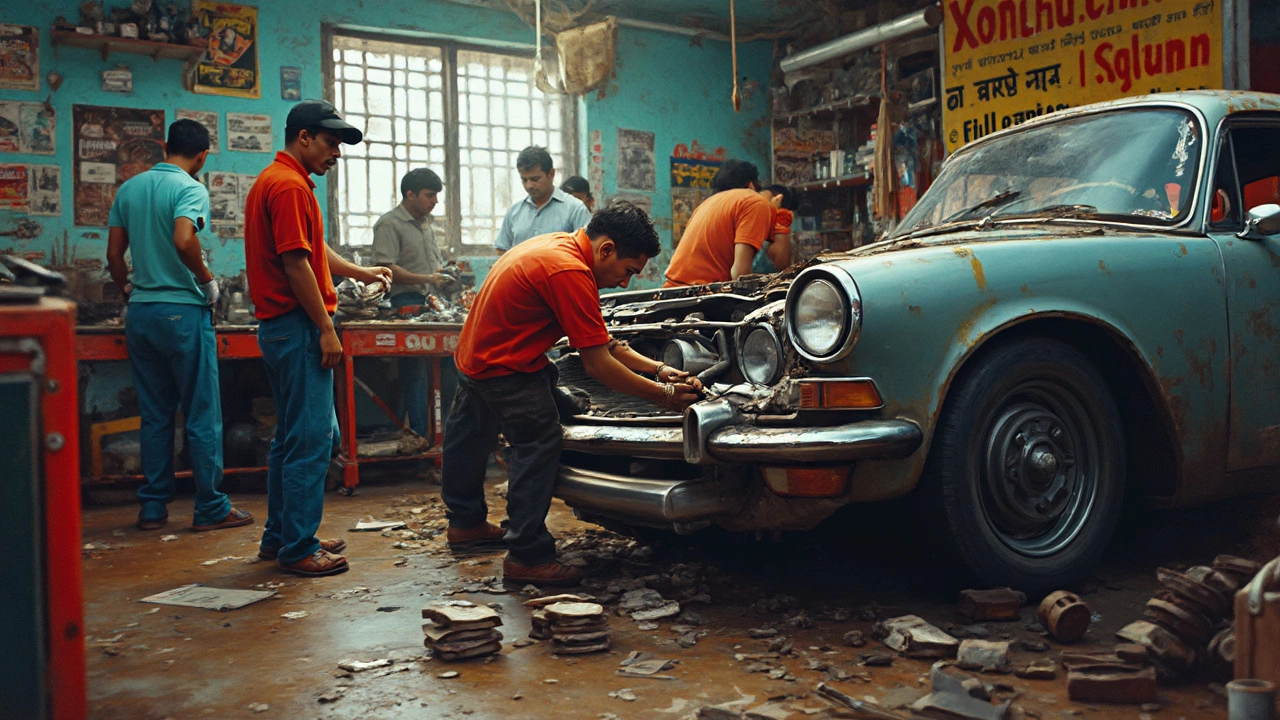
Exhaust System: What It Does, How It Fails, and What to Do About It
When you hear that deep rumble from a car rolling down the road, you're hearing the exhaust system, the network of pipes, mufflers, and catalytic converters that channels engine gases out of the vehicle while reducing noise and pollution. Also known as the tailpipe system, it’s not just about sound—it’s a vital part of your car’s health, efficiency, and legality. If it’s cracked, rusted, or missing a piece, you’re not just being loud—you’re risking carbon monoxide leaks, reduced fuel economy, and even engine damage.
The muffler, a component designed to dampen engine noise through internal chambers and sound-absorbing materials is often the first to go. Rust eats through steel mufflers in as little as 3–5 years, especially in coastal or snowy regions. A failing cat-back system, the section of the exhaust from the catalytic converter to the tailpipe, including pipes, resonators, and mufflers can cause a sudden, annoying drone or even a loud bang when you accelerate. And if you’ve ever heard a car sound like a lawnmower with a hole in the pipe? That’s usually a resonator delete, a modification that removes a sound-tuning component to increase volume, often leading to unwanted drone or legal trouble. These aren’t just upgrades—they’re trade-offs that affect how your car runs and how long it lasts.
Many people think louder exhaust means more power. It doesn’t—unless the old system was clogged. A properly tuned exhaust reduces backpressure, letting your engine breathe better. But a broken or poorly installed system does the opposite: it forces your engine to work harder, burns more fuel, and can even trigger a check engine light. You’ll see this in posts about how to get a throaty exhaust note—because the right setup isn’t just about drilling holes. It’s about matching pipe diameter, choosing the right muffler type, and knowing where to cut without breaking emissions rules.
What you’ll find below are real stories from drivers who ignored their exhaust until it was too late. Some heard a rattle and thought, "It’s just noise." Others swapped parts themselves and ended up with a car that sounded like a jet engine but ran like a dying tractor. There are guides on diagnosing exhaust noises, what happens when you remove the resonator, and why a simple leak can cost you hundreds in lost fuel and repairs. Whether you’re trying to fix a leak, upgrade for sound, or just understand why your car suddenly sounds wrong—this collection has what you need to act before it turns into a bigger, more expensive problem.
-
13 Feb

-
18 Nov

Does a 2 into 1 exhaust increase horsepower? Here's what actually happens
A 2 into 1 exhaust may add a few horsepower, but only if properly tuned. On stock engines, it often hurts low-end torque and can cause legal or mechanical issues. Real gains come from airflow and tuning, not just pipe count. -
22 Apr

Is Cat Back Worth It? The Truth About Upgrading Your Exhaust
Thinking about upgrading your car with a cat back exhaust system? This article breaks down what cat back systems really do, how much power you can expect, and whether they're actually worth your money. We'll look at performance gains, sound changes, and real-world tips for buying and installing. Find out the real pros and cons before you open your wallet. Get honest answers, not sales talk. -
31 Mar

Do Spark Plugs Affect Your Car's Exhaust?
Understanding how spark plugs influence your car's exhaust can help improve engine performance. This article explores the role of spark plugs in the exhaust process, shedding light on their impact on emissions, fuel efficiency, and engine health. We provide practical tips for maintaining spark plugs for better exhaust outcomes. Dive into the mechanics of spark plugs and how they are crucial to a well-running vehicle. -
24 Feb

How Long Does It Take to Install a Full Exhaust System?
Installing a full exhaust system can vary in time, depending on factors like vehicle type, system complexity, and your mechanical skills. With some basic knowledge, the task ranges from a few hours to a full day. Knowing what to expect and preparing in advance can save headaches down the road. This guide breaks down the process, factors affecting time, and tips to streamline installation.





